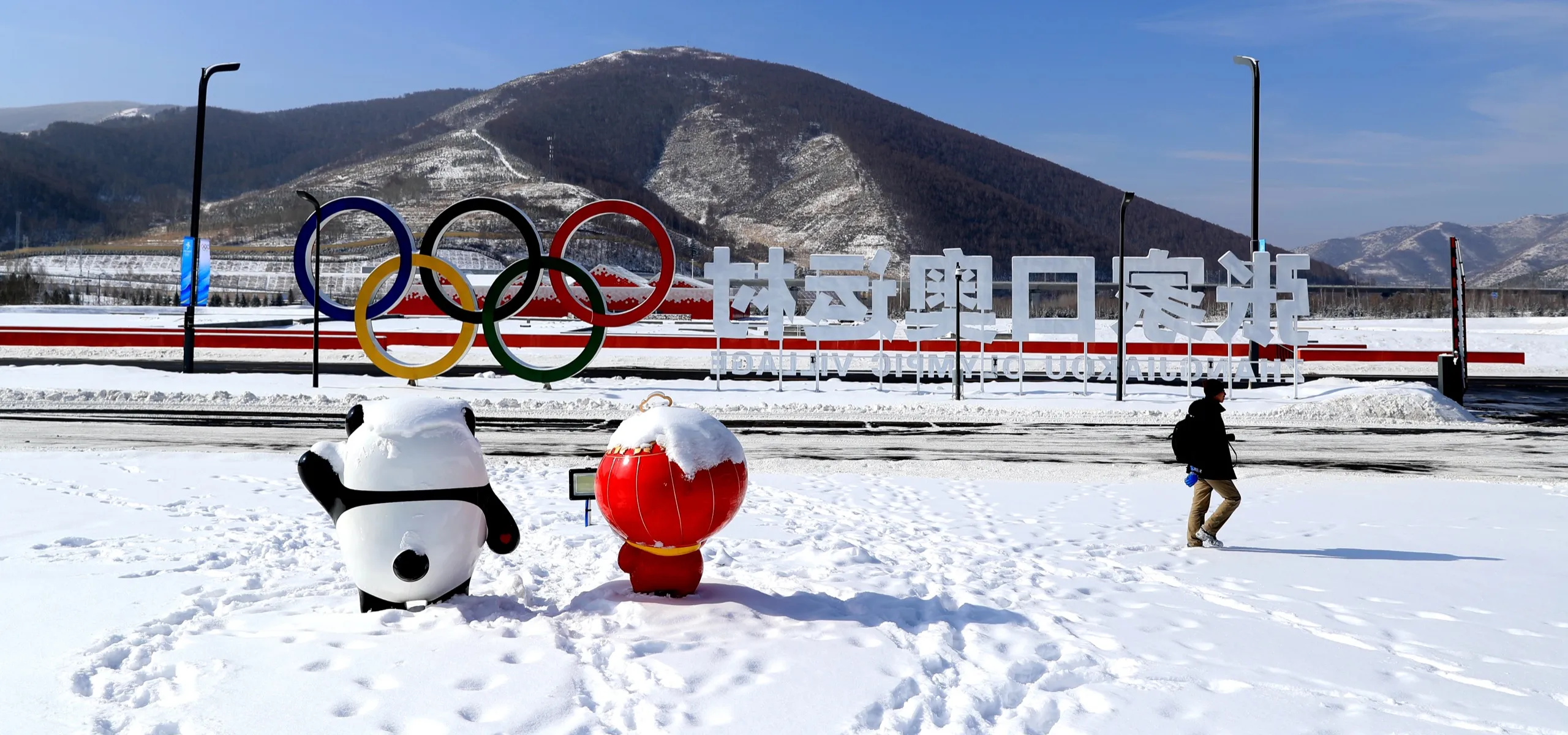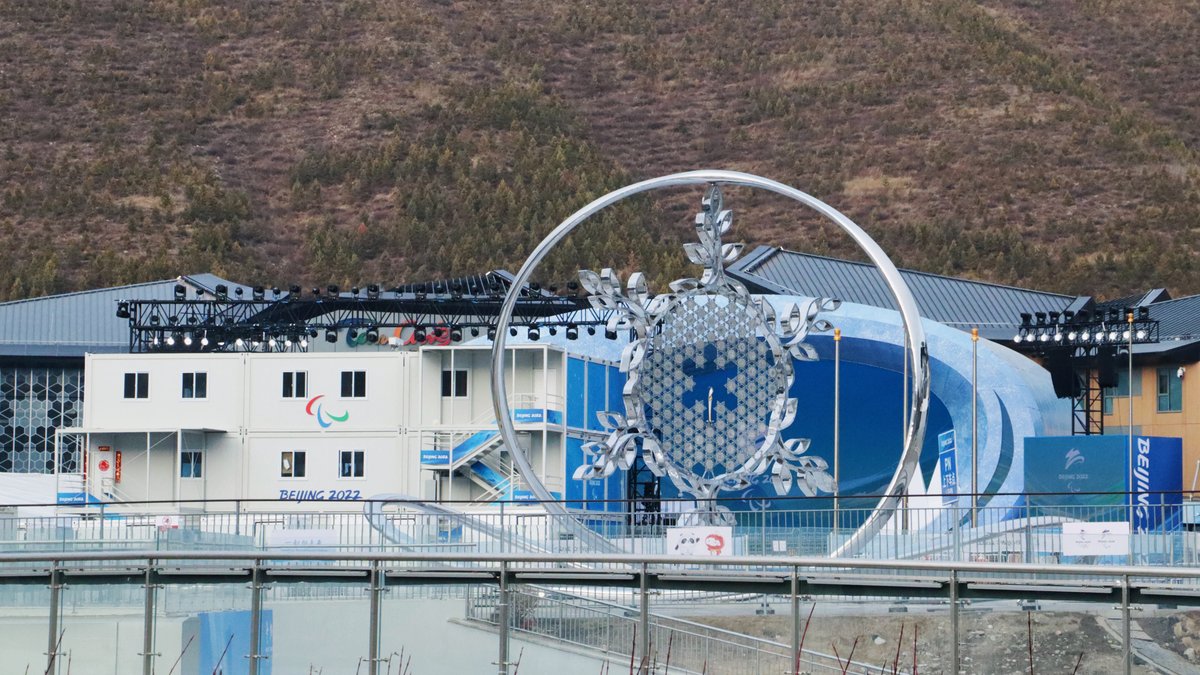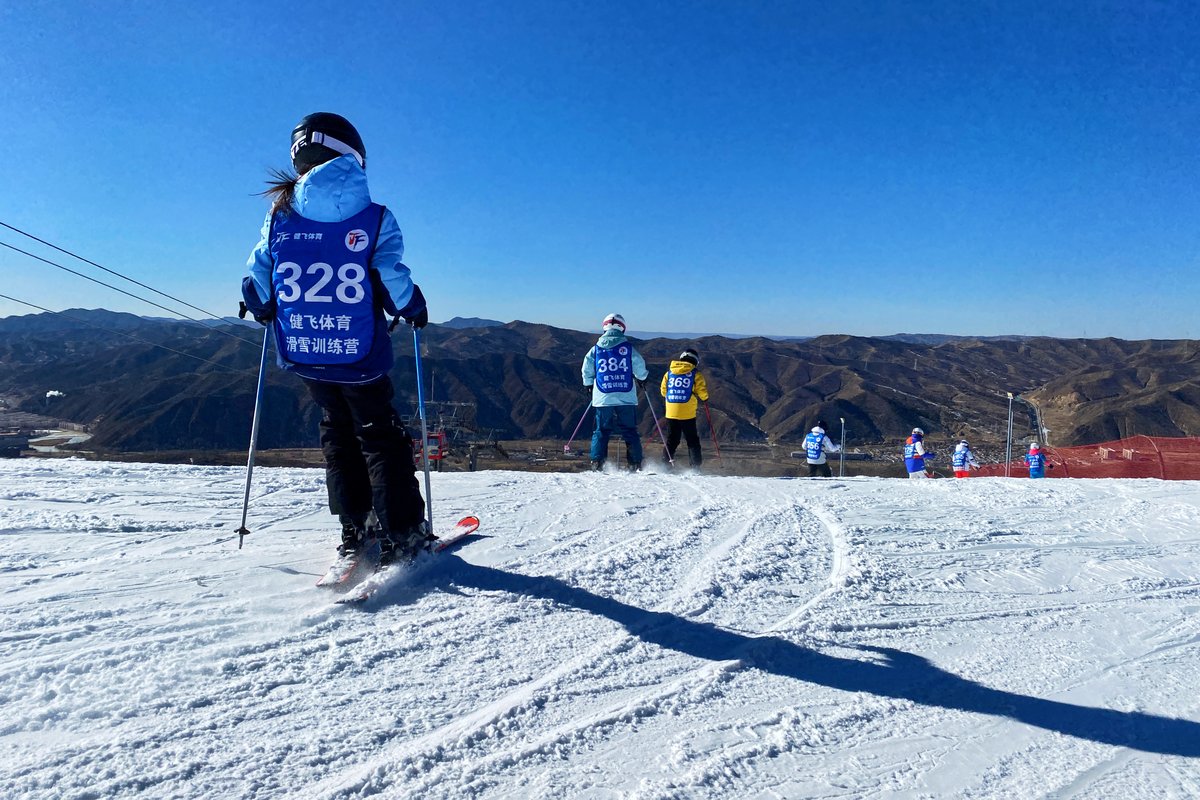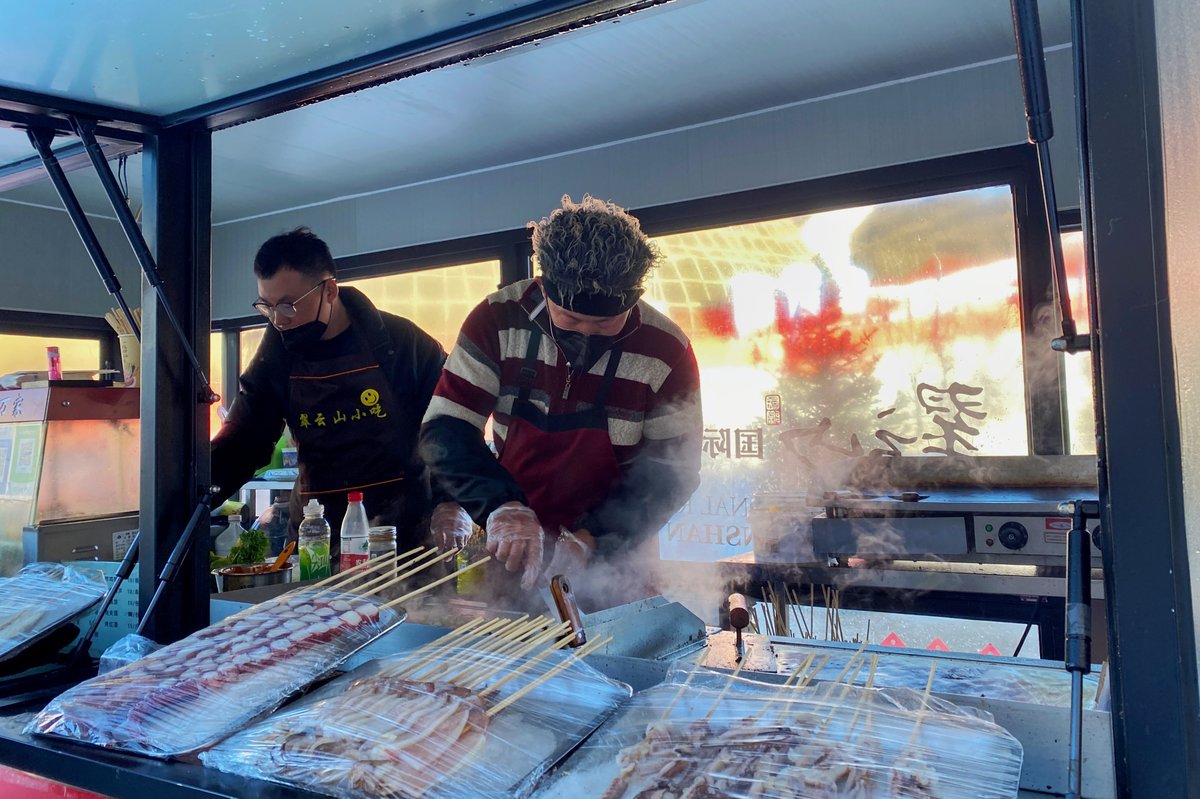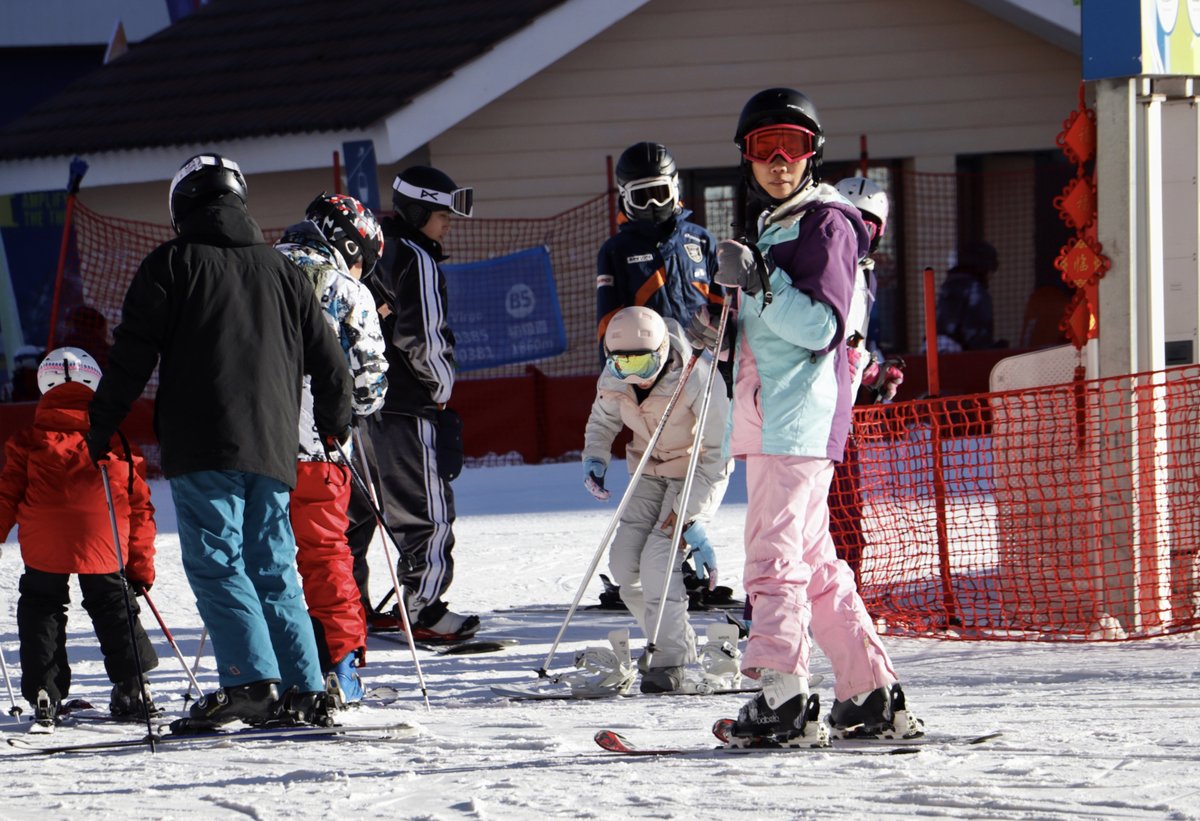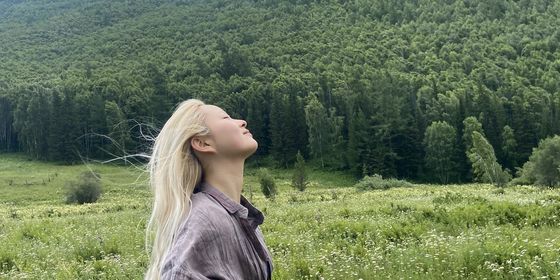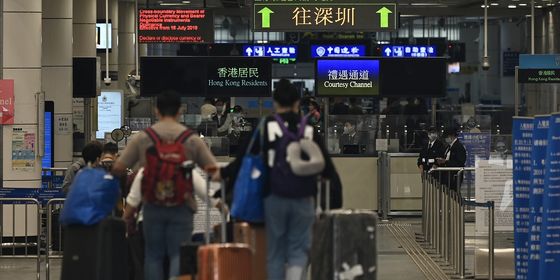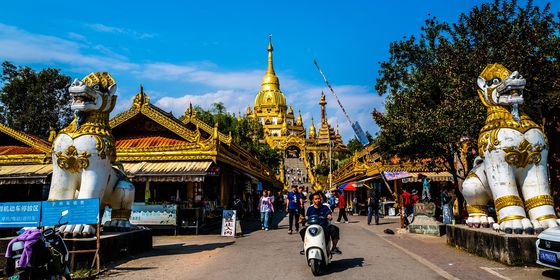A year on from the Winter Olympic Games, has Zhangjiakou bounced back from the pandemic and lived up to its promise as China’s ski capital?
Yu Dian still remembers the thrill of seeing China’s snow sport stars Su Yiming and Gu Ailing (also known as Eileen Gu) competing at the 2022 Winter Olympic Games in Zhangjiakou, Hebei province. “Zhangjiakou was a bustling, busy location crowded with Olympic stars,” 21-year-old Yu reminisces of her time working as a broadcast assistant for the Games in February last year.
Since then, she’s been desperate to ski on the same slopes as Su, the 18-year-old snowboarding sensation who won a gold and silver medal at the Winter Games. Soon after China’s pandemic restrictions were suddenly lifted in December 2022, Yu hopped on the high-speed rail from Beijing, built in the lead-up to the Olympics, to Chongli district (home to most of Zhangjiakou’s ski resorts). She headed to the Olympic venue at the National Ski Jumping Center: “It was fun to feel like I’m on the same steep slope as the athletes,” Yu tells TWOC.
One year on from the Winter Olympics, and having weathered a total three hard winters under the pandemic since the resorts opened, Chongli is teeming with crowds again. Unlike during the Games in February 2022, it’s not filled with professional athletes living and competing in strict Covid control bubbles, or press corps forced to quarantine for weeks before the events, but hundreds of thousands of tourists getting their skiing fix, or trying out snow sports for the first time after getting inspired by the Games. The old Olympic venues also draw fans like Yu who feel attached to China’s winter sport stars.
But despite the crowds this February, three years of pandemic restrictions and the increasingly fierce market competition has put Zhangjiakou in a precarious position.
A formerly impoverished Hebei city known for manufacturing and natural resources, Zhangjiakou has bet for years on the Winter Olympics to fuel sustained growth in ski tourism. With snow sports booming since China was awarded the Winter Olympics in 2015—over 300 million people participated in winter sports in 2022, according to official statistics—and around 672 million yuan invested in the Games in Zhangjiakou (excluding 50 billion spent on the high-speed rail line from Beijing), the once unheralded city should have been poised to flourish.
“The snow park owners joked that their snow-making machines were not spraying snow, they were spraying money,” says Hao Shihua, the owner of Flower Ski School in Chongli. Zhangjiakou’s dry climate and minimal annual snowfall means the ski resorts there must make their own snow with machines, at huge cost. “There isn’t one ski resort that hasn’t lost money over the last few years,” Hao, who set up her school back in 2012, reckons. Even this year, after China suddenly removed most Covid restrictions in December, visitor numbers were down for months because “everyone had Covid…and those who weren’t didn’t dare go out, so there was basically no one skiing,” Hao adds.
With travel restrictions and frequent lockdowns suppressing demand over the last three years, many businesses have had to throw in the towel: “It was a hard period for local companies to survive,” Hao says. When Zhangjiakou successfully bid to host the Olympics in 2015, Chongli had over 30 ski schools, but that number shrank to perhaps just three after the pandemic, according to Hao.
Flower Ski School survived in part because of the Olympics, for which Hao gained contracts from the government to train first aid responders and mountain rescuers who would work on the slopes during events, and journalists from state-media who would need to snap photos and record footage on the snow. “To be honest, over the last two years, the government saved us…over that period, it gave us enough income to cover our [revenue] problems,” she says.
The investment boom in Zhangjiakou, and then abrupt closures of ski resorts over the pandemic period, also affected employees originally drawn to the area by job prospects promised by the Olympics. Cui Chao quit his job as a programmer in Beijing five years ago to become a ski instructor in Chongli. He could earn up to 30,000 yuan a month during the busiest periods, but the closure of ski resorts last year took away his income, forcing him to take a job installing air conditioning units. The earnings barely covered his expenses.
This year, however, things finally appear to be picking back up. According to the Zhangjiakou’s tourism bureau, the city received 1.51 million visits during the Lunar New Year holiday, generating income of 1.13 billion yuan—up from 2022, but still below the 3.88 million visits the city received in 2018. “It’s part of the afterglow of the Winter Olympics, and also from the desire for outdoor fresh air after the long-lasting epidemic,” Cui believes. This fits with countrywide tourism patterns, with official statistics suggesting Chinese made 308 million trips during the holiday period this year: up 23 percent from last year, but still only 88 percent of pre-pandemic numbers in 2019.
According to Hao, demand for instructors in Chongli has risen perhaps tenfold since the Winter Olympics, as more people are inspired to learn: “[Now] we Chinese have a deeper understanding of winter sports; through the Winter Olympics more people are participating in snow activities,” she believes. In addition to experienced skiers, there are also large numbers of beginners. “In the past, people considered snow sports dangerous, but the Winter Olympics gave more publicity to these activities,” Cui says.
Wang Qiuhan, an office worker in Beijing, was among the beginners trying skiing for the first time in Chongli this year. “I saw many ski videos on [video platform] Bilibili and thought it looked very cool, and my friends often ski…so I decided to experience it myself,” she tells TWOC. As a newcomer, she hoped to teach herself at first, but eventually gave in and hired an instructor. “The instructors on the slopes would always accost us to promote their courses…it’s quite chaotic at the moment. I hope they can be more professional in the future.”
Overall, however, Wang says her experience was positive, noting comfortable accommodations, nice restaurants, and hot springs in Chongli as highlights. “I’d like to see the Olympic venues too if I have the opportunity,” she says.
The cost of skiing in Chongli, however, may put the brakes on the industry’s development. Ski passes for a day can cost over 500 yuan, while equipment rental is often a few hundred on top. Beginners might be tempted to ski at smaller, cheaper resorts close to Beijing or dotted around much of the north of the country.
Wang Buwei (no relation to Wang Qiuhan), another skier at Chongli who has visited the area from Beijing twice already in 2023, spent around 2,000 yuan for a weekend trip, including accommodations, ski tickets, rental equipment, and food. She believes it’s worth it, however, because the facilities are newer than resorts in Beijing (in part due to the influx of investment drawn by the Olympics), and there are “a variety of resorts all close together…so I can ski a range of places.”
For locals in Zhangjiakou, the investment brought by the Winter Olympics may provide them with tourism-related employment or extra customers for their restaurants, but they are unlikely to be spending much time on the slopes themselves. Zhangjiakou residents have on average around 2,300 yuan in disposable income per month, according to local government statistics from 2022. Likewise, as investment has poured into Zhangjiakou, property prices near ski resorts have rocketed: One report presented at a 2018 forum for real estate developers showed property prices in Chongli had increased 2,500 percent from 2003 to 2018. Prices have fallen lately, from an average of over 8,000 yuan per square meter in March 2022 to 7,854 yuan per square meter this month, according to data from Anjuke, a real estate agency.
For Chongli’s ski resorts, the end of Covid restrictions also brings more competition. More experienced skiers may be tempted to spend just slightly more to travel to larger resorts in China’s Northeast, or places with natural snow like Xinjiang. No longer discouraged from going abroad by mandatory centralized quarantine, experienced skiers (and those keen to travel abroad after three years at home) are also desperate to get their fix of the larger, natural snow-covered resorts of Japan, the US, and elsewhere.
The city’s local government, however, is doubling down on the Olympic afterglow to spur economic development in the city: at the beginning of 2023, 36 post-Olympic economic development projects were signed in Zhangjiakou, with a total investment of 40.9 billion yuan.
Cui still remembers that when he first arrived in Chongli in 2018, the hotels were shabby, the wind whipped through the dusty town, and finding a restaurant sometimes meant a long drive. Now Chongli is full of accommodation, shops, spas, and, after three years, people: “I really get a holiday feeling there,” says Wang Buwei. If others like her keep coming back, Zhangjiakou’s Olympic legacy may last.





